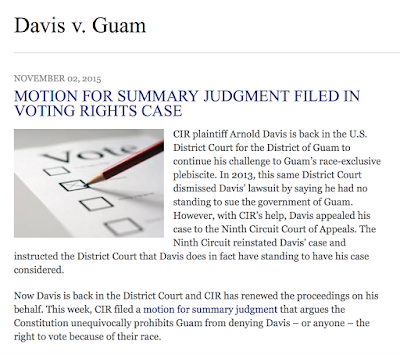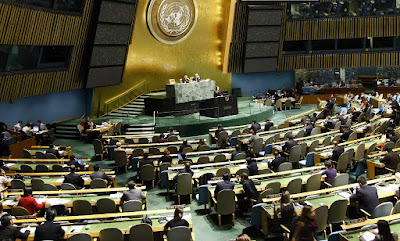Decolonization in the Caribbean
I am currently in St. Vincent and the Grenadines for the United Nations Committee of 24 Regional Seminar. I was invited to intend to speak as an expert on the situation in Guam and the Chamorro people's ongoing quest for self-determination and decolonization. This is my fourth time to be invited to speak at the UN C24 Regional Seminar, as I attended once in Ecuador in 2013 and then twice in Nicaragua in 2015 and 2016. I have never been to this part of the world before, meaning the Caribbean, and so I am excited not only to represent Guam, but also to learn more about the struggles for independence and decolonization that have ta ken place on these many islands. I'll be writing about the happenings of the regional seminar and my experiences under the theme of "Decolonization in the Caribbean." Watch this space over the next few weeks to read my posts.



